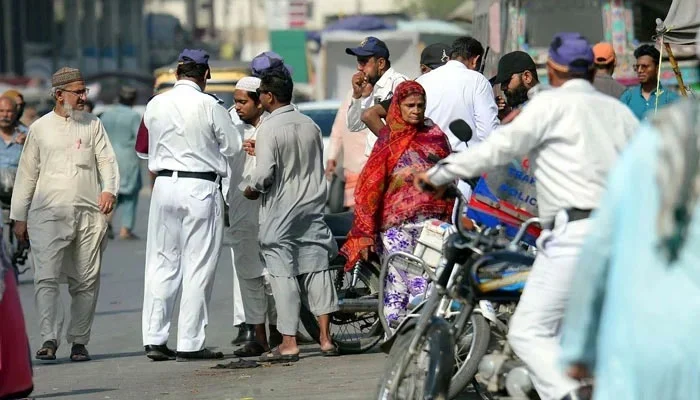Karachi’s traffic police issued 3,485 e-challans on Monday under the city’s new faceless traffic enforcement system. Most of these fines—2,433 in total—were given to drivers not wearing seat belts. Other violations included 511 fines for not wearing helmets, 78 for using mobile phones while driving, 51 for speeding, and 27 for driving the wrong way. Forty-five vehicles carrying passengers on bus rooftops were also fined, along with five drivers for ignoring zebra crossings.
The Traffic Regulation and Citation System (TRACS), which started on October 28, replaces manual ticketing with an automated system using AI-powered CCTV cameras. The system identifies violations such as speeding, red-light jumping, and helmet non-compliance automatically, reducing human error and ensuring fair enforcement.
databases,Drivers can pay fines or check their violations at TRACS Sahulat centers at traffic offices or through the TRACS app. The system is linked with government databases including NADRA and the excise and taxation department. Currently, 200 cameras are in operation across Karachi, with plans to expand to 12,000 city-wide and eventually cover other districts in Sindh.
Despite its advantages, TRACS has faced criticism after some citizens reported receiving fines for violations they didn’t commit. One person said he was fined for riding without a helmet near Teen Talwar while he was actually at home. In response, Sindh Chief Minister Murad Ali Shah said first-time fines would be waived, but repeat offenders would face strict action.
Many citizens and political leaders have also raised concerns about the high fines, given the city’s poor road conditions. Some petitions have been filed in the Sindh High Court questioning the legality of the system and asking for a review, particularly of the Rs5,000 fines for motorcyclists, which are much higher than fines in cities like Lahore.
#KarachiTraffic #EChallan #RoadSafety #TrafficFines #KarachiNews #MotoristSafety







